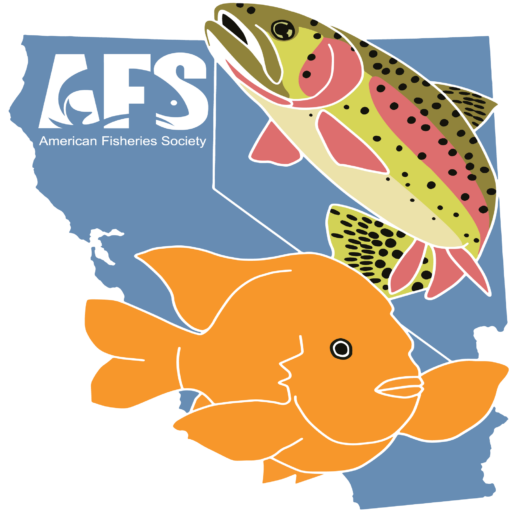There will be three Continuing Education courses offered on Sunday, March 15 as part of the Cal-Neva Annual Meeting. Courses will cover:
- Federal Endangered Species Act
- Introduction to Practical Statistics with R
- Presentation Skills and Poster Design
Details about each course are below. You can register for courses here.
Course 1: Federal Endangered Species Act
Course Description:
This course will provide a history and overview of the Federal Endangered Species Act (ESA) with a focus on the major sections of the federal ESA that govern federal listings, recovery planning, habitat conservation plans, safe harbor agreements, interagency consultations, science and enhancement permits, and enforcement. Case studies will be presented on several topics and an ESA handbook will be provided to all participants.
Who should attend:
The workshop will host guest speakers on specific topics. Participants with no formal training on the ESA are welcome to attend.
Instructor(s):
Charlotte Ambrose (NOAA Fisheries), Amanda Cranford (NOAA Fisheries)
Charlotte Ambrose has worked for NOAA Fisheries over 20 years and is currently the California Programs Coordinator stationed in Sacramento. She acts as a statewide liaison for NOAA Fisheries on salmon and steelhead programs and initiatives of statewide or regional significance. Charlotte recently served in the capacity of Recovery Coordinator responsible for developing and implementing federal recovery plans for California Central Coast coho salmon, Chinook salmon and steelhead. She has a Bachelor of Science degree from the University of Georgia and experience in both the public and private sectors (where she worked for six years as a wildlife and forestry consultant). Charlotte is most recognized for her leadership working with the California Board of Forestry to improve forest practice regulations for the benefit of salmonids and their habitats.
Amanda Cranford has worked for NOAA Fisheries for just over 5 years and is currently a Natural Resource Management Specialist stationed in Sacramento, California. In her current role, Amanda serves as the Central Valley Hatchery Coordinator, assisting with the development of Hatchery and Genetic Management Plans (HGMPs) and the associated permitting for anadromous hatchery programs throughout the Central Valley. Amanda is also the Central Valley point-of-contact for research and enhancement permits and acts as a liaison to NOAA Fisheries Protected Resources Division staff who issue and oversee the majority of the research permits in California. She has a Bachelor of Science degree in Wildlife, Fish, and Conservation Biology from the University of California, Davis and has experience working for both state and federal natural resource agencies, including time as a contractor. Amanda’s recent accomplishments include being the recipient of a U.S. Department of Commerce Bronze Medal Award for assisting with the implementation of the Battle Creek Winter-run Chinook Salmon Jumpstart Reintroduction Project.
Course 2: Introduction to Practical Statistics with R
Course Description:
This course will cover basic concepts in statistics with an emphasis on the statistical computing program R. Course topics will include data visualization and descriptive statistics, publication quality graphics, common probability distributions, statistical tests, and an introduction to general linear models. Each topic will begin with background material, followed by a code demonstration, and ending with hands-on exercises so attendees can gain experience writing, running, and troubleshooting their own R code. Students will also be encouraged to help each other, as this is normal practice for the community of scientists who use R for data analysis. Instructors will also provide copies of course materials for students to reference in the future.
Who should attend:
A basic understanding of statistics is important for anyone working in a science field who has a need or desire to read and write peer-reviewed articles and technical reports, prepare presentations and posters for conferences, design experiments, research data analysis methods, or make science-based policy decisions. Statistical skills can help individuals grow in their careers, whether they are looking for their first fisheries job or whether they are looking to move from one role to the next (e.g., from technician to scientist, from scientist to senior scientist, or from scientist to manager). This course is designed for fisheries research professionals at any level who have had some exposure to basic statistical concepts but who may need a refresher course. Participants with no formal exposure to these concepts are also welcome, though we expect the majority of attendees will have had some prior exposure through school or work experience. Although many of these concepts will be unchanged in the time since participants may have first encountered them, it is beneficial for individuals to refresh their skills, particularly if they do not currently use statistics on a regular basis. By using R, we aim to demonstrate that using statistics on a regular basis—perhaps even a daily basis—can be easy and beneficial for their short and long term career goals. By becoming familiar with R, participants will be opening the door for more advanced methods of analysis that are not covered in this workshop but that may be useful later on.
Instructor(s):
Lara Mitchell (U.S. Fish and Wildlife Service), Vanessa Tobias (U.S. Fish and Wildlife Service)
Lara is a statistician with over seven years of experience writing code and analyzing date for federal agencies, including the U.S. Fish and Wildlife Service and U.S. Geological Survey. She has an M.S. in Mathematics, a B.S. in Applied Math and Physics, and an A.A. in Programming. She enjoys synthesizing data analysis and software development to solve complex problems, translate solutions into usable code, build tools to analyze and visualize data, and promote collaboration. She is especially fond of helping others troubleshoot their code so they can move forward with their projects.
Vanessa has almost a decade of experience working with monitoring data in the San Francisco Estuary. She is a Mathematical Statistician at the USFWS Lodi Fish and Wildlife Office and was previously a Senior Environmental Scientist (Specialist) on the Synthesis Team at the California Department of Fish and Wildlife. Her postdoctoral work at UC Davis included experience as a statistician for wildlife monitoring programs run by the National Wildlife Refuges. Vanessa also has several years of teaching experience and enjoys helping students learn new skills.
Course 3: Presentation Skills and Poster Design
Course Description:
Learn to improve your communication skills with both oral and poster presentations. Topics include identifying your presentation goal, clearly stating your message, developing and organizing appropriate content, designing slides, and posters, delivering the presentation, and more. The course also provides instruction on preparing the presentation environment, including moderating a session, lighting, room layout, and equipment. Attendees will have an opportunity to practice their presentations and/or share their posters and receive constructive critique by the class.
Who should attend:
Anyone who desires to improve his or her communication skills will benefit from the course.
Instructor(s):
J.D. Wikert (U.S. Fish and Wildlife Service)
J.D. Wikert is a habitat restoration coordinator for the U.S. Fish and Wildlife Service working on salmon habitat. He regularly gives presentations both professionally and personally. He developed the course hoping to increase the quality of conference presentations. J.D. has taught the course numerous times for AFS meetings, and for both the U.S. Fish & Wildlife and National Marine Fisheries Services.

